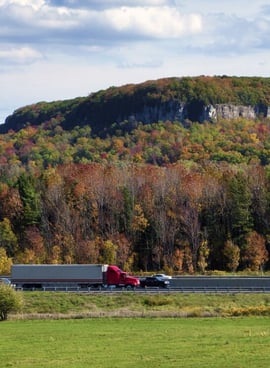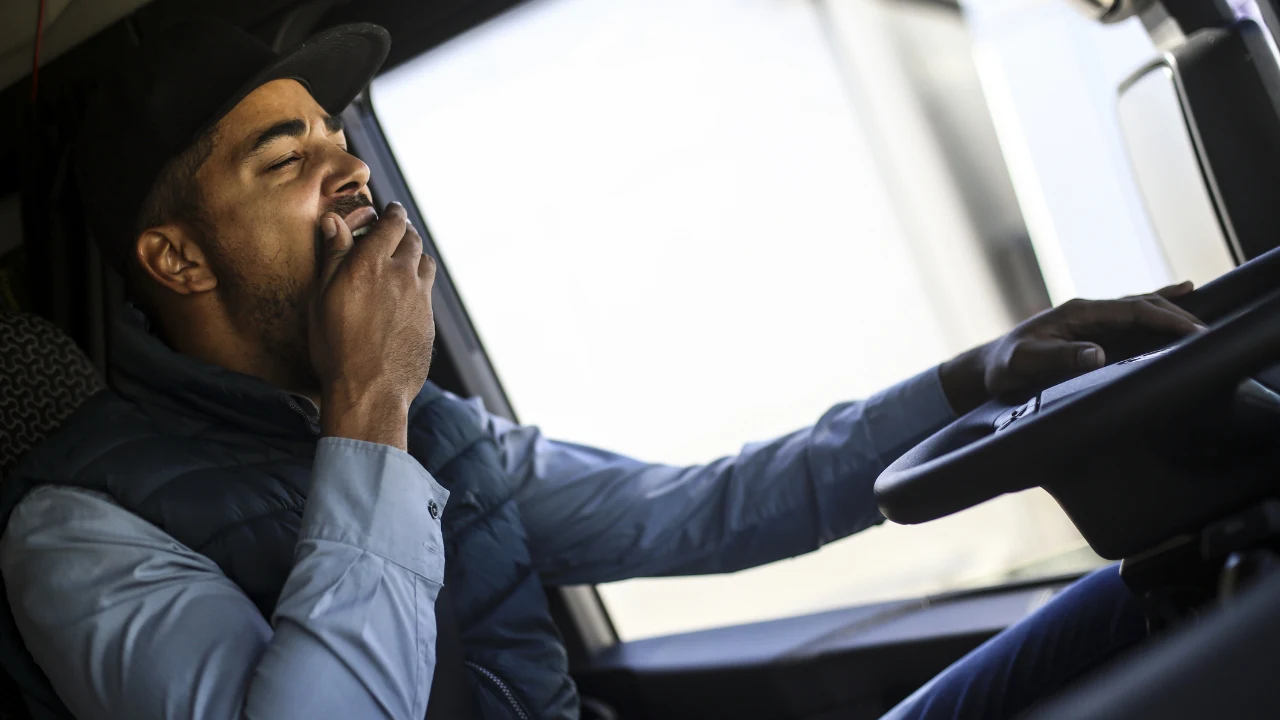Leadership's Role In Controlling Risk
A motor carrier’s leadership team plays a pivotal role in shaping company culture and defining...
As a freight forwarder in the trucking industry, you have unique insurance needs because you act as common carriers for shippers. Your role also makes your business subject to the Carmack Amendment.
The Carmack Amendment applies to cargo shipped across state lines. It regulates the relationship between shipping companies and the owners of goods under shipment. While the act limits shipping carriers to liability for property damage only, it makes the carrier liable for damage regardless of how the damage was caused. Because of this, your freight forwarding business encounters risks many other trucking companies simply don’t face.
Many freight forwarders issue a sub-bill of lading to their motor carrier to transfer some of their liability. Unfortunately, your business can still face financial risk. For example:
Depending on how your freight forwarding business is set up, you can still be held liable for the negligent acts of a motor carrier or its truck drivers.
That’s why it is important to have Freight Forwarders insurance. It protects you and your clients against legal fees, court expenses, and judgments that result from being named in a lawsuit against a motor carrier.
No two freight forwarders run their business the same way. That’s why your Great West agent may recommend a policy amendment, often called an endorsement, to match the unique risks your freight business faces. By adding an endorsement, your Great West agent can modify your Freight Forwarders coverage based on how your trucking business is structured, your shipping partnership agreements, and how you run your operations.
If you are a freight forwarder that works with motor carriers, your Great West agent will recommend adding a Contingent Liability Coverage Endorsement and a Contingent Cargo Coverage Endorsement to your Freight Forwarders insurance policy.
Great West’s Contingent Coverage Endorsement protects your business when your motor carrier has an accident and the insurance required in your forwarder agreement is not collectible. It is called contingent coverage because it pays out only if the insurance from the motor carrier does not, and the payment is reduced by any settlement made by, or on behalf of, the hauling carrier.
For this endorsement, you must have a forwarder agreement. Your motor carrier is required to furnish you with a copy of their Auto Liability and Cargo policies, an Additional Insured endorsement, or a certificate of insurance.
As a motor carrier that works with freight forwarders, most of your forwarding contracts will require adding the freight forwarder as an Additional Insured to your Auto Liability and Cargo insurance policies. This Additional Insured Endorsement is attached to your Great West policy to meet that requirement.
For this endorsement, you must have a written forwarder agreement with the freight forwarder.
The Additional Insured Endorsement will provide primary Auto Liability and Cargo coverage to the freight forwarder, including contractual liability and a provision for notice of policy cancellation or reduced limits.
A Second-Level Liability Endorsement is attached to a motor carrier’s Auto Liability insurance policy to provide the freight forwarder coverage in excess of what is required by the motor carrier in its contractor agreement.
If the agreement between the freight forwarder and a motor carrier requires that the motor carrier maintain a $1 million liability, but the freight forwarder needs $2 million of coverage for its business, this endorsement would provide that additional coverage.
It is important to note that this endorsement provides coverage only for the freight forwarder. The motor carrier is not covered.

Great West has focused on only commercial truck insurance for more than 65 years. Our deep experience in the industry and understanding of trucking insurance means we can help you protect your freight forwarding business by creating a specialized policy that matches the unique risks.
When you have an accident, we know that fast, professional claims service is crucial to your livelihood and the clients that depend on you. That’s why Great West provides proactive claims service specialists to help you file a claim 24x7x365 and get things moving quickly.
A freight forwarder is required to supply the FMCSA with evidence of liability and cargo filings. When you have a Great West policy, we make those filings for you and will issue an MCS-90 Endorsement, if appropriate. It’s another convenient advantage of choosing Great West Freight Forwarders insurance.
This summary is intended for informational purposes only and does not replace or modify the definitions or information contained in any insurance policy or declaration page, which controls all coverage determinations. Terms and conditions may vary by state, and exclusions may apply.

Great West |
A motor carrier’s leadership team plays a pivotal role in shaping company culture and defining...

Great West |
Driver fatigue remains a significant concern in the trucking industry, posing risks to road safety...

Great West |
Over the past decade, onboard technologies have revolutionized the trucking industry. These...